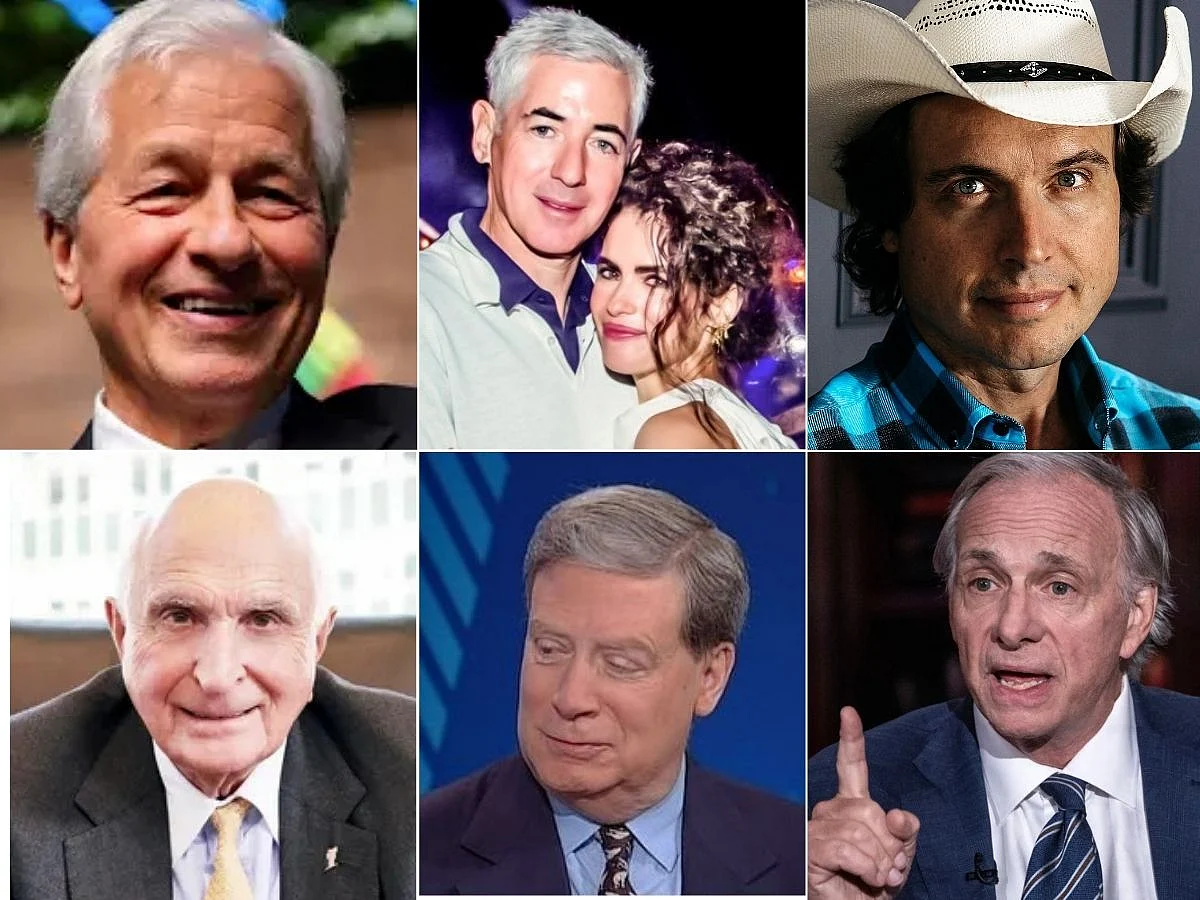Mega-billionaires, Wall St legends break ranks with Trump over tariffs
A growing list of billionaires is blasting Trump’s across-the-board levy

US President Donald Trump’s sweeping tariffs are facing an increasingly vocal backlash — not from political opponents, but from some of the wealthiest and most influential names in American finance and business, including several of his own supporters.
That list includes Kimbal Musk, the brother of Elon, Trump’s most trusted adviser and Cabinet member.
From Wall Street to Silicon Valley, a growing list of billionaires is lining up to criticize what they describe as economically reckless protectionism, with fears mounting that the policy will trigger a global recession.
Prices will remain high and the tax on consumption will remain in the form of higher prices.Kimbal Musk (brother of Elon Musk, CEO of Tesla and head of DOGE)
Ken Langone: “I don’t understand it”
Home Depot co-founder and longtime GOP megadonor Ken Langone became the latest to break ranks, calling the Trump administration’s new 46 per cent tariffs on Vietnam “B**” and blasting the 34 per cent rate on China as “too aggressive, too soon.”
“I don’t understand the ** formula,” Langone told the Financial Times. “I believe [Trump’s] been poorly advised by his advisers about this trade situation.”
Langone’s outburst reflects growing frustration from pro-business Republicans who once viewed Trump as a deregulation ally but now see his trade policy as erratic and dangerous.
Bill Ackman: “Economic nuclear winter”
Billionaire hedge fund manager Bill Ackman, a vocal Trump supporter since 2024, warned that the US is on the brink of a self-inflicted economic catastrophe.
“We are heading for a self-induced, economic nuclear winter,” Ackman posted on X, formerly Twitter.
“I strongly believe launching tariffs on April 9th against the entire world — massively in excess of what we are being charged — is a mistake,” Ackman, founder of Pershing Square and vocal Trump supporter, wrote on X.
In another post, Ackman added that if a “time out” isn’t called on the tariffs, “we should start hunkering down”.
He called for a 90-day pause on the tariffs to allow for “strategic” negotiations, cautioning that launching such sweeping duties during a market downturn “doesn’t help the president’s negotiating position.”
Ackman’s fund, Pershing Square, is relatively insulated from direct tariff fallout but he warned that confidence and consumption were already plummeting — reflected in a historic stock market rout that’s seen more than $5 trillion erased from U.S. equities in a matter of days.
Kimbal Musk: A permanent tax on the American consumer
Kimbal Musk, board member at Tesla and younger brother of Elon Musk, slammed the tariffs as a regressive tax on Americans.
“Even if [Trump] is successful in bringing jobs on shore, prices will remain high,” Musk tweeted. “This is a structural, permanent tax on the American consumer.”
“Even if [Trump] is successful in bringing jobs on shore through the tariff tax, prices will remain high and the tax on consumption will remain in the form of higher prices because we are simply not as good at making things,” Kimbal Musk wrote.
Tesla, in a recent letter to the U.S. Trade Representative, warned of the potential effect on its bottom line of retaliatory tariffs from countries affected by Trump’s tariffs.
Elon Musk is the CEO of Tesla, as well as the de facto head of DOGE, the Trump administration’s project to slash federal spending.
Kimbal Musk is a Tesla board member, also stated that Trump appears to be the “most high tax American President in generations.”
Tesla itself warned in a letter to the US Trade Representative that the retaliatory tariffs from affected countries could damage its bottom line, despite its global manufacturing network.
Jamie Dimon: “Resolve this quickly”
JPMorgan Chase CEO Jamie Dimon took a more measured but equally urgent tone. In his annual shareholder letter, Dimon warned that “some of the negative effects increase cumulatively over time and would be hard to reverse.”
Dimon stopped short of directly criticising Trump, but his comments mark a shift from the careful silence most Wall Street leaders have maintained since Trump’s reelection.
Warnings from Wall Street legends
Other financial titans joined the chorus of criticism:
Boaz Weinstein, founder of Saba Capital, predicted an “avalanche” of corporate bond defaults.
Howard Marks, co-chair of Oaktree Capital, warned of cascading uncertainties for global investors.
Daniel Loeb of Third Point questioned whether ideology was trumping economic logic.
Stanley Druckenmiller reiterated his long-standing opposition to tariffs above 10%, calling Trump’s approach “a mistake.”
Ray Dalio, founder of Bridgewater Associates, said the policy would lead to “significantly stagflationary” outcomes.
No signs of backing down
Despite the uproar, Trump appears undeterred. “We’re not looking at a pause on tariffs,” the president told reporters Monday.
His administration has signaled that more duties could be announced soon, especially if countries like China and Germany fail to remove retaliatory tariffs on US goods by April 9.
Commerce Secretary Howard Lutnick and Treasury Secretary Scott Bessent have both framed the tariffs as a negotiation tactic, saying that more than 70 countries have approached the White House to open talks.
Japan may receive priority in those negotiations, Bessent said, but talks could stretch into June.
Market fallout
The consequences of Trump’s tariff policy are already reverberating through the markets:
The S&P 500 is down nearly 20 per cent from its most recent peak.
The Nasdaq 100 has entered bear market territory.
Apple has lost nearly $640 billion in market capitalisation over three days amid concerns about tariff exposure in China, Vietnam, and India.
Other tech and retail giants are bracing for similar cost pressures, with investors expecting either price increases or shrinking profit margins.
Sign up for the Daily Briefing
Get the latest news and updates straight to your inbox
Network Links
GN StoreDownload our app
© Al Nisr Publishing LLC 2026. All rights reserved.